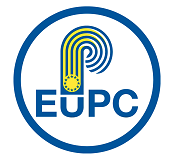2021
Consequences of a call for a 30% mandatory recycled content target for plastic packaging
Please find below the newest European Plastics Converters' Press Release
Brussels, 9 September 2021
Plastic packaging manufacturers in Europe are committed to the European Commission’s circular economy targets. The use of recycled plastics in packaging reduces dependence on fossil raw materials and thus CO2 emissions in packaging production. We strongly believe that the objective to increase the recycled content in packaging in order to reach 30% by 2030 is legitimate and achievable as far as the responsibility is shared by the whole value chain. Regarding that, EuPC warns Plastics Europe of the consequences of placing risks of structural change unilaterally on the shoulders of the plastic converters (their customers) without closely looking into alternative possibilities to increase recycled content in packaging.
“The introduction of product-related mandatory recycled content threatens supply bottlenecks as is being the case in the rPET EU market today. As long as recyclates required by the market are not yet available in sufficient quantities and qualities, there is a big risk of quality impairments and marketing bans for our plastic packaging. In the food packaging sector, for example, the technical and legal prerequisites for the use of recycled materials are not yet in place. This would seriously jeopardise the economic existence of thousands of medium-sized plastics processors and packaging users in Europe and their investments into circularity. Circular Economy is a shared responsibility. We therefore call for a fair distribution of legal obligations along the value chain and a recognition of chemical recycling by the EU and national authorities. To safeguard against supply bottlenecks, plastics producers should be obliged to put a correspondingly high proportion of recyclates or circular polymers on the EU market. Legal substitution quotas for virgin plastics are also the means of choice for this. Appropriate concepts are already being worked on” said Renato Zelcher, EuPC President.
EuPC fundamentally welcomes innovations in recycling and advocates for open and fair competition between technologies without ideological blinkers. Chemical recycling offers opportunities for the circular economy above all where waste streams are so heavily mixed and contaminated that plastic waste can no longer be sensibly sorted out and recycled mechanically. In addition, the chemical processes deliver recyclates in virgin material quality that could help to close the supply gap in the area of for example recycled polyolefins for food packaging. The mechanical-physical processes cannot do that, at least not yet, but there are innovations here as well. In the sense of fair competition for the most ecological and economic solution, chemical recycling should be recognised as soon as possible.
Alexandre Dangis EuPC Managing Director added, “In order to make the closing of the cycle as economical and climate-efficient as possible, we mainly rely on the further expansion of established mechanical recycling in the packaging sector through appropriate design-for-recycling and high quality collection and sorting of waste. Under no circumstances should efforts to expand separate collection and design-for-recycling be pushed back in the hope that new technologies will make them obsolete in the foreseeable future. The European Commission has not yet put forward a proposal for recyclate use quotas, but is currently examining various regulatory approaches to increase recyclate use. A first proposal is expected by the end of the year at the earliest. We demand that all approaches are subject to an unbiased scientific impact assessment in order to avoid economic damage as well as ecological mistakes. Plastic converters are open to further discuss and work with polymer producers and all relevant stakeholders in the months to come in combination with the ongoing work of the EU Commission”.


